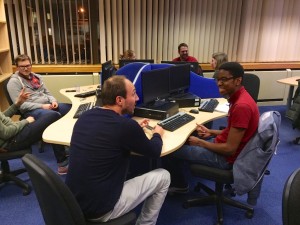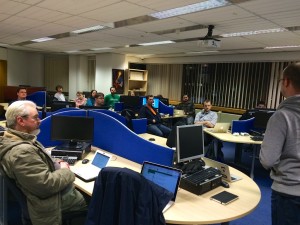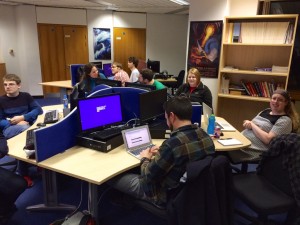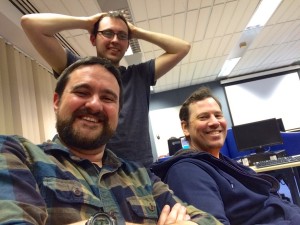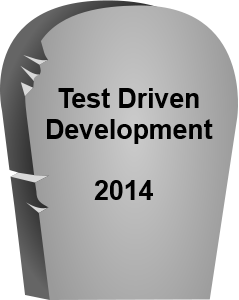
Calculator Kata
Date: Thursday 23rd January 2014
Time: 7:00pm
Venue: Staffordshire University – Stafford Campus (Octagon building, K102)
With the new year now behind us, to kick start 2014 Agile Staffordshire will be going back to basics with a twist. A key technique in agile development is Test Driven Development (TDD), a difficult skill to master yet often practiced through simple Kata exercises. For the uninitiated, Katas are a reference to martial arts where students repeatably practice a set of moves in order to better learn and understand. Programming Katas are similar short 10-30 minute challenges where the goal is the same but each attempt can lead you to experience a different journey.
This month we will be pairing together to do the String Calculator by Roy Osherove but with a constraint of your choosing. Kata rules are below, as are a selection of constraints but feel free to choose your own. There is no set language, but you will need one with a testing framework for TDD.
String Calculator
The following is a TDD Kata- an exercise in coding, refactoring and test-first, that you should apply daily for at least 15 minutes (I do 30).
Before you start:
- Try not to read ahead.
- Do one task at a time. The trick is to learn to work incrementally.
- Make sure you only test for correct inputs. there is no need to test for invalid inputs for this kata
String Calculator
- Create a simple String calculator with a method int Add(string numbers)
- The method can take 0, 1 or 2 numbers, and will return their sum (for an empty string it will return 0) for example “” or “1” or “1,2”
- Start with the simplest test case of an empty string and move to 1 and two numbers
- Remember to solve things as simply as possible so that you force yourself to write tests you did not think about
- Remember to refactor after each passing test
- Allow the Add method to handle an unknown amount of numbers
- Allow the Add method to handle new lines between numbers (instead of commas).
- the following input is ok: “1\n2,3” (will equal 6)
- the following input is NOT ok: “1,\n” (not need to prove it – just clarifying)
- Support different delimiters
- to change a delimiter, the beginning of the string will contain a separate line that looks like this: “//[delimiter]\n[numbers…]” for example “//;\n1;2” should return three where the default delimiter is ‘;’ .
- the first line is optional. all existing scenarios should still be supported
- Calling Add with a negative number will throw an exception “negatives not allowed” – and the negative that was passed.if there are multiple negatives, show all of them in the exception message
stop here if you are a beginner. Continue if you can finish the steps so far in less than 30 minutes.
- Numbers bigger than 1000 should be ignored, so adding 2 + 1001 = 2
- Delimiters can be of any length with the following format: “//[delimiter]\n” for example: “//[***]\n1***2***3” should return 6
- Allow multiple delimiters like this: “//[delim1][delim2]\n” for example “//[*][%]\n1*2%3” should return 6.
- make sure you can also handle multiple delimiters with length longer than one char
Kata Constraints
Select ONE constraint from below.
- No If, Else, Switch Statements
- No mouse
- No Classes
- Use a functional language
- No Mutable State
- No Getters/Setters
- No IDE
- 2 Refactorings after each passing test
- Single word method names
- Or make one up yourself…
Many of the constraints above which affect the design of code, work towards improving object calisthenics. More on this can be found here.
The goal of the session is not to complete the Kata (you may even restart several times) but to learn through the experience of your selected constraint.
This will also be a special month, as it will be the last regular attendance of one of Agile Staffordshire’s founding members. Neil Kidd will be moving on to a new position at 7Digital, so all please wish him the best.
Hope to see you there.
Jon
